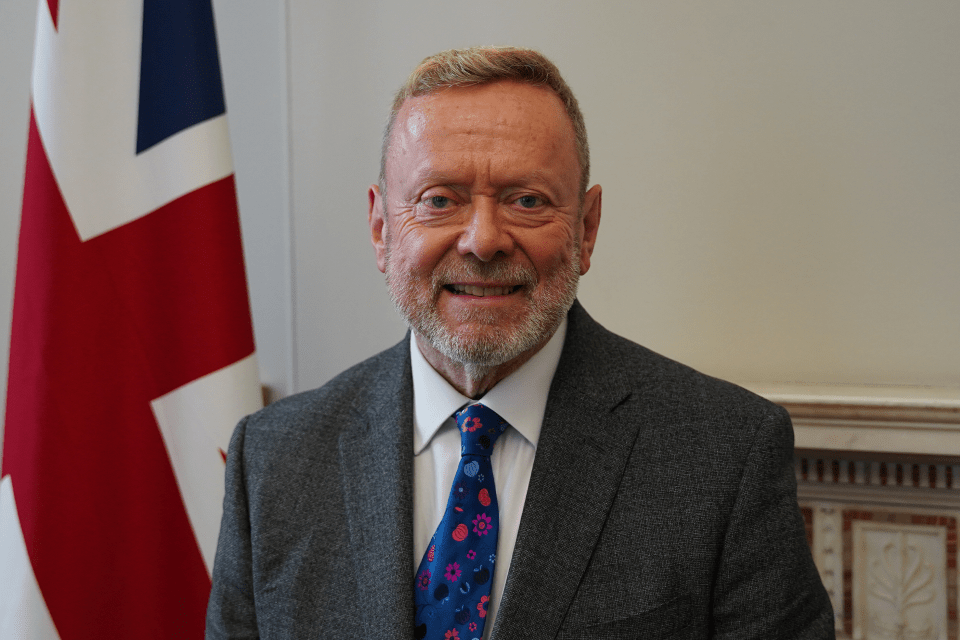
Lord Collins’ 2025 Speech on UK Religious Freedom
Minister responsible for human rights, Lord Collins of Highbury, gave a speech at an event outlining the UK’s approach to freedom of religion or belief.
Welcome everyone. It’s great to see you all this morning.
It was here in this magnificent room last year that the Foreign Secretary and I set out the United Kingdom’s approach to human rights and governance.
A few days later, the Prime Minister appointed David Smith MP as the UK’s Special Envoy for Freedom of Religion or Belief – or FoRB.
Thank you to David for the energy and commitment he has brought to the role over the last 7 months.
Before I hand over to him to outline our approach to freedom of religion or belief, I want to reflect on why it matters so deeply to the UK and how we’re making a difference.
Many of you will know that this is a cause I have championed for a long time. As the Foreign Secretary has said, the rights and freedoms of individuals must be front and centre of all our work.
We promote human rights, including FoRB, not just because it is in our national interest but also because it is the right thing to do. Human rights, the rule of law and good governance are not just ideals we aspire to. They are the foundations that drive this government’s missions.
The evidence is clear. Countries that uphold rights and the rule of law tend to be more stable, more prosperous and more resilient. That’s why I wrote to all Heads of Mission last month, underlining the importance of embedding our human rights priorities into every aspect of our work.
Doing so supports our partners, strengthens our alliances, and helps us tackle shared challenges, whether that’s conflict, climate, growth or migration. And I encouraged our diplomats to draw on the expertise of our dedicated Special Envoys, including David.
As you know, the right to freedom of religion or belief sits at the heart of our human rights approach and is central to the UK’s foreign policy. Because championing FoRB is about championing equal rights for all.
We know that where this freedom is under threat, other rights are often at risk too. And we know that violations disproportionately affect women and minorities.
So this is about standing up for people who face discrimination, harassment, or even violence, simply for what they do, or do not, believe.
Article 18 of the Universal Declaration of Human Rights affirms that everyone has the right to freedom of thought, conscience, and religion.
But these rights still remain out of reach for too many people. From Uyghurs in China, to Church members in Nicaragua, to religious and ethnic minorities caught up in Sudan’s civil war, and Ukrainians under siege by Russia, persecution and repression are a daily reality.
We know this work is complex. There is no one size fits all. In that context, we must prioritise approaches that deliver results on the ground. Sometimes that requires speaking out publicly. Sometimes it means engaging privately. We have and will continue to do both.
We are not afraid to raise issues and we do so regularly. But we also know that real progress comes through partnership. That’s why we work with others across governments, civil society, and multilateral institutions, to find common ground and deliver change.
Earlier this year, I was relieved to hear of the release of Mubarak Bala, a Nigerian atheist and president of the Humanist Association of Nigeria. He had been imprisoned for sharing posts on Facebook which allegedly insulted the prophet Muhammad. His release was the result of a long running campaign by Humanists International, which the UK was pleased to support, along with many of you here today.
Similarly, I know many of you were actively seeking the release of Pastor Lorenzo Rosales Fajardo in Cuba, jailed for peaceful protest. Our Foreign Secretary wrote an open letter to him in December to express solidarity and publicly call on the Cuban authorities to release him. And we were delighted to hear of his release in January.
These are powerful reminders that our collective efforts can have real impact. And we must also learn from the past to meet the challenges of the present. That’s why the UK was proud to hold the presidency of the International Holocaust Remembrance Alliance over the last year.
We used our initiative to lead international efforts to promote Holocaust remembrance, tackle distortion, strengthen the fight against antisemitism, and ensure that future generations remember the lessons of the past. This is exactly the kind of collaboration essential for making FoRB a reality for all.
So let me end by reaffirming this government’s commitment. We will use the strength of our global network to protect and promote freedom of religion or belief. We will work with all of you, across sectors and borders, to turn principles into progress.
Because only by working together can we build a world where everyone, everywhere, can live with dignity, free to believe – or not believe – without fear.
Thank you.
https://www.gov.uk/government/speeches/uk-approach-to-freedom-of-religion-or-belief-lord-collins-speech-july-2025


